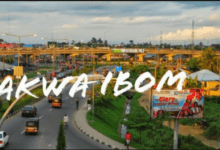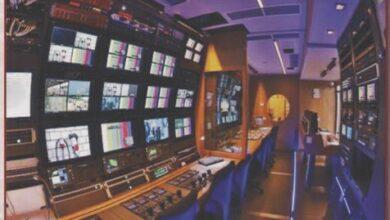
The Role Of Mass Media In Economic Development In Nigeria
The Role Of Mass Media In Economic Development In Nigeria – Mass media can play a crucial role in promoting economic development in Nigeria. As the most populous country in Africa, with a diverse and rapidly-growing economy, Nigeria has a lot to gain from a vibrant and well-functioning media sector. Mass media in Nigeria can provide information about market opportunities and trends, which can help businesses to make informed decisions and drive economic growth. Mass media can also facilitate communication among different stakeholders in the economy, including policymakers, businesses, and consumers, which can promote cooperation and understanding.The Role Of Mass Media In Economic Development In Nigeria
Read Also: The Role Of The Church In Peace Building In Nigeria
👉 Relocate to Canada Today!
Live, Study and Work in Canada. No Payment is Required! Hurry Now click here to Apply >> Immigrate to CanadaWhat is Mass Media?
Mass media refers to the various channels and platforms through which information and ideas are disseminated to a large audience. This can include traditional media such as television, radio, and print media, as well as online and social media. Mass media plays a crucial role in modern society, as it provides information and enables communication among different stakeholders.
Types Of Mass Media in Nigeria?
The types of mass media in Nigeria can be broadly divided into four categories: traditional media, online media, social media, and alternative media.
1. Traditional Media:
Traditional media in Nigeria includes television, radio, and print media, such as newspapers and magazines. Television is a popular and influential form of mass media in Nigeria, with a number of national and regional broadcasters, as well as a growing number of satellite and cable television channels. Radio is also a popular and widely-used form of mass media, with a large number of broadcasters, including national and regional stations, as well as community and religious broadcasters. Print media, including newspapers and magazines, is less prevalent in Nigeria, due to low levels of literacy and competition from other forms of mass media.
2. Online Media:
Online media in Nigeria includes a range of websites and digital platforms that provide news, information, and entertainment to a wide audience. Online media has grown in popularity in recent years, as more and more Nigerians have gained access to the internet, either through personal computers or mobile devices. Online media outlets in Nigeria include a range of news websites, as well as specialized platforms that provide information on specific topics, such as business, sports, or entertainment.Information Guide Nigeria
3. Social Media:
Social media in Nigeria has also grown in popularity in recent years, as more and more Nigerians have gained access to the internet and mobile devices. Social media platforms, such as Facebook, Twitter, and Instagram, are widely used in Nigeria, both by individuals and organizations, to share information, opinions, and updates. Social media has become an important tool for political engagement, as well as a means of promoting businesses and organizations.
4. Alternative Media:
Alternative media in Nigeria includes a range of media outlets and platforms that are independent of mainstream media and provide alternative perspectives on issues and events. Alternative media can include community radio stations, independent websites and blogs, and citizen journalism platforms. Alternative media in Nigeria provides a voice for marginalized and disadvantaged groups and can promote diversity and accountability in the media landscape.
What are the advantages Of Mass Media?
1. Wide Reach:
Mass media has the ability to reach a large audience in a short period of time. This is because mass media outlets such as television, radio, and newspapers are able to broadcast information to a wide range of people at once.
Read Also: The Role Of Nigeria In Formation Of ECOWAS
👉 Relocate to Canada Today!
Live, Study and Work in Canada. No Payment is Required! Hurry Now click here to Apply >> Immigrate to Canada2. Access To information:
Mass media provides access to a wide range of information and can keep people informed about current events and issues that are happening locally, nationally, and internationally.
3. Connecting People:
Mass media can bring people together and help to create a sense of community. For example, watching a television show or listening to a radio program can be a shared experience that brings people together.
4. Influencing Public Opinion:
Mass media has the power to shape public opinion and attitudes toward certain issues or events. For example, news coverage of a political event can influence how people view a candidate or policy.
5. Advertising:
Mass media provides a platform for businesses to advertise their products and services to a large audience. This can be a powerful tool for businesses to reach potential customers and increase sales.
Factors Affecting Mass Media In Nigeria?
1. Government Regulation:
In Nigeria, mass media is subject to government regulation through laws and policies that aim to ensure balanced and fair coverage of issues. These regulations can affect the freedom of the media and the ability to report on certain topics.
Read Also: The Role Of Media In Nigerian’s Democracy
2. Economic Factors:
The cost of producing and distributing mass media content, as well as the demand for advertising, can impact the viability of mass media outlets. Economic challenges can make it difficult for media companies to operate and may limit the types of content that are produced.
3. Cultural Factors:
The cultural values and beliefs of a society can influence the way that mass media is received and perceived. In Nigeria, cultural factors may affect the popularity of certain types of media and the types of content that are considered acceptable to be consumed.How Chelsea can pull off miracle comeback to stun Real Madrid and keep season alive
4. Technological Advances:
The evolution of technology has had a significant impact on mass media in Nigeria, with the rise of the internet and social media platforms providing new avenues for the distribution of information and the creation of online communities.
5. Political Factors:
The political climate in Nigeria can affect the freedom and independence of the media, as well as the willingness of media outlets to report on certain issues. Political pressures and censorship can limit the ability of the media to report on certain topics.
What is Economic Development?
Economic development refers to the process of improving the economic well-being and quality of life of a region or country. It is often measured by indicators such as gross domestic product (GDP), the level of employment, and the standard of living of the population. Economic development can be achieved through a variety of means, including investing in infrastructure, education, and training, and promoting entrepreneurship and innovation. Economic development can also involve the diversification of an economy, moving away from a reliance on a single industry and towards a more diverse range of economic activities.
Forms of Economic Development in Nigeria?
1. Agriculture:
Nigeria has a large agricultural sector, which is a key contributor to its economic development. The country is known for producing a range of crops, including maize, rice, wheat, yams, and cassava, as well as livestock such as cattle, goats, and poultry. The government has implemented initiatives to support the agriculture sector, including investing in infrastructure, research, and development, and providing access to credit and training for farmers.How to Transfer Money From Wema Bank Using USSD
2. Manufacturing:
The manufacturing sector in Nigeria has the potential to drive economic development by creating jobs and increasing the production of goods for both domestic and international markets. The government has implemented policies to encourage the growth of the manufacturing sector, including tax incentives and infrastructure development.
3. Tourism:
Nigeria has a rich cultural heritage and natural beauty that can attract tourists from around the world. The tourism sector has the potential to contribute significantly to economic development by creating jobs and generating revenue through the sale of goods and services. The government has implemented policies to support the growth of the tourism sector, including the development of infrastructure and the promotion of Nigeria as a tourist destination.
4. Oil and Gas:
Nigeria is a major oil-producing country and the oil and gas sector is a key contributor to its economy. The government has implemented policies to support the growth of the sector, including investing in infrastructure and providing tax incentives to oil and gas companies.
5. Service Sector:
The service sector in Nigeria, which includes industries such as finance, healthcare, and education, has the potential to contribute significantly to economic development by creating jobs and providing services to the population. The government has implemented policies to support the growth of the service sector, including investing in infrastructure and providing access to credit for businesses.
Advantages of Economic Development in Nigeria?
1. Increased Job Opportunities:
Economic development can lead to the creation of new businesses and industries, which can generate employment opportunities for the local population. This can help reduce poverty and improve standards of living.
2. Improved Infrastructure:
Economic development can also lead to improvements in infrastructure, such as roads, bridges, and public transportation, which can help facilitate trade and commerce.
3. Increased Government Revenue:
Economic development can lead to increased tax revenues for the government, which can be used to fund public services and programs.
4. Increased Foreign Investment:
Economic development can attract foreign investment, which can bring in new technologies and expertise, as well as capital to fund new projects and businesses. Romantic Love Messages
5. Improved Living Standards:
Economic development can lead to improved living standards for the local population, including access to better education, healthcare, and other public services.
Read Also: The Role Of Russia In The Nigerian Civil War
Factors Affecting Economic Development In Nigeria?
1. Political Instability:
Political instability can hinder economic development by creating uncertainty and a lack of predictability, which can discourage investment and make it difficult for businesses to operate.
2. Corruption:
Corruption can also hinder economic development by diverting resources away from productive uses and towards rent-seeking activities. It can also create an uneven playing field for businesses, which can discourage competition and innovation.Good Morning Love Message
3. Lack Of Infrastructure:
A lack of infrastructure, such as roads, ports, and telecommunications, can make it difficult for businesses to operate and for goods and services to be transported and traded.
4. Poor Educational System:
A poorly performing educational system can hinder economic development by failing to prepare the workforce with the skills and knowledge needed to participate in the modern economy.
5. Economic Policies:
Economic policies that are not conducive to growth, such as high taxes and regulatory barriers, can discourage investment and hinder economic development.
Mass Media And Economic Development In Nigeria?
Mass media, such as television, radio, and print media, can play a significant role in economic development in Nigeria. By providing information about market trends, economic policies, and business opportunities, mass media can help facilitate economic decision-making and encourage entrepreneurship and innovation. Mass media can also serve as a platform for promoting the products and services of local businesses, which can help stimulate economic growth and development.
Additionally, mass media can help raise awareness about economic issues and promote transparency and accountability in government and business. It can also serve as a means of communication between different sectors of the economy, such as businesses, government, and civil society, which can help facilitate cooperation and collaboration towards economic development goals. However, it is important that mass media is regulated and operates in a fair and unbiased manner, in order to ensure that it serves the interests of the public and promotes economic development rather than hindering it. NYSC Portal
The Role Of MassMedia In Economic Development In Nigeria?
Below are the roles of MassMedia in economic development in Nigeria:
1. Providing Information About Economic Opportunities:
One of the primary roles of mass media in economic development is to provide information about market opportunities and trends. This can help businesses to make informed decisions about where to invest, what products to produce, and how to market themselves, which can in turn drive economic growth and development. In Nigeria, mass media outlets such as television, radio, newspapers, and online platforms can provide valuable information about changes in economic policy, market trends, and investment opportunities, which can help businesses to adapt to new conditions and take advantage of emerging opportunities.
2. Facilitating Communication Among Different Stakeholders:
Another important role of mass media in economic development is to facilitate communication among different stakeholders in the economy. This can include policymakers, businesses, consumers, and civil society organizations. In Nigeria, mass media outlets such as television and radio programs can provide a platform for policymakers to discuss economic issues and share their views with the public, while social media platforms can enable businesses to directly engage with their customers and respond to their feedback and concerns. This communication can help to build trust and understanding among different groups, which can in turn promote economic cooperation and growth.JAMB Portal
3. Promoting Entrepreneurship And Innovation:
Mass media can also play a key role in promoting entrepreneurship and innovation in Nigeria. By providing information about market opportunities and sharing success stories of entrepreneurs, mass media can inspire and motivate individuals to start their own businesses and pursue new ideas. In Nigeria, mass media outlets can highlight the work of successful entrepreneurs and showcase innovative products and services, which can help to create a culture of entrepreneurship and support the development of new businesses.
4. Fostering A Culture Of Accountability And Transparency:
Mass media can also contribute to economic development in Nigeria by fostering a culture of accountability and transparency. By reporting on the activities of businesses and policymakers, mass media can help to ensure that these actors are held accountable for their actions and decisions. This can help to prevent corruption and promote good governance, which are essential for creating a stable and conducive environment for economic growth. In Nigeria, mass media outlets can play a crucial role in shining a light on corruption and other forms of mismanagement, which can help to improve the functioning of the economy and support long-term development.
5. Providing Education And Training:
Another important role of mass media in economic development is to provide education and training. By disseminating information about different aspects of the economy, mass media can help to educate and empower individuals, which can enable them to make informed decisions and participate in the economy. In Nigeria, mass media outlets can provide valuable information about financial literacy, entrepreneurship, and other skills that are essential for economic growth and development.
6. Supporting Local Development:
Mass media can also support local development in Nigeria by providing information about and promoting the products and services of local businesses. This can help to boost the local economy and support the growth of small and medium-sized enterprises, which are a key driver of economic growth and job creation in Nigeria. In addition, mass media can also help to promote tourism and other local industries, which can provide a valuable source of income and support the development of local communities.
Read Also: The Role Of The Code Of Conduct Tribunal In Nigeria
7. Promoting Local Products And Services:
Mass media can serve as a platform for promoting the products and services of local businesses, which can help stimulate economic growth and development.
8. Raising Awareness About Economic Issues:
Mass media can help raise awareness about economic issues, such as poverty, unemployment, and inequality, and encourage dialogue and action to address these challenges.
9. Encouraging Entrepreneurship And Innovation:
Mass media can serve as a source of inspiration and information for entrepreneurs and innovators, helping to foster a culture of creativity and risk-taking.
10. Facilitating Communication Between Different Sectors Of The Economy:
Mass media can help facilitate communication between businesses, government, and civil society, which can help promote cooperation and collaboration towards economic development goals.
Conclusion
The history of mass media is a story of innovation and evolution, as new technologies and platforms have emerged to facilitate the spread of ideas and information on a global scale. Despite the challenges and controversies that have accompanied the growth of mass media, it remains an essential tool for promoting communication, education, and democracy in the modern world. The types of mass media in Nigeria are diverse and dynamic, reflecting the country’s large and rapidly-changing economy. Traditional, online, social, and alternative media all play important roles in providing information, facilitating communication, and promoting accountability and transparency in Nigeria.
Check JAMB RESULT
Check and Confirm: How much is Dollar to Naira






